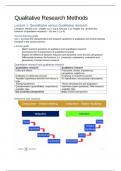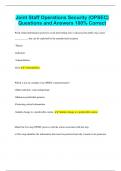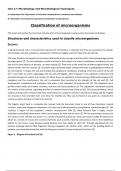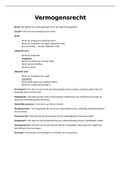Samenvatting
Samenvatting Qualitative Research Practice - Qualitative Research Methods
- Instelling
- Tilburg University (UVT)
This document contains a very extensive summary of the course 'Qualitative Research Methods'. Lectureslides, notes taken during the lectures and the relevant chapters from the book are all merged. The course and lecture goals are mentioned, just like the chapters for each week.
[Meer zien]













